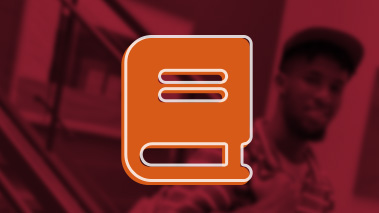Engineering, Civil Major
- Associate of Science (A.S.)
Program Snapshot
Your Learning Options
In-Person, Hybrid, Online
68-70 Credit Hours
Estimated Time to Complete
2 years (5 full-time semesters)
In-State Tuition Per Credit Hour
$176.00 | Calculate your costs
Why Civil Engineering?
Discover through hands-on experience, practical skills, and a robust academic foundation, a path to success in the civil engineering field.
- Gain real-world experience through laboratory work, field studies, and internships, ensuring you are job-ready upon graduation.
- Benefit from our strong partnerships with major universities, facilitating a smooth transfer to bachelor's degree programs in civil engineering at Virginia institutions.
- Learn from experienced professionals and educators who provide personalized mentorship and guidance throughout your academic journey.

Program Roadmap
Get all the details on our Civil Engineering program, including class sequences, admission requirements, financial considerations, and more.
Paying for College
We are committed to using all of the available funds to help you gain access to a college education. In fact, more than 91% of our students graduate without any educational debt. In 2023, Reynolds Community College students received over $21 million dollars in grants, loans, work-study and scholarships with the average aid awarded totaling over $4,000 per student.
Payment plans are offered to break down tuition payments. Textbook Assistance and Laptop Lending Programs are also available. Be sure to explore all the types of financial aid available as well!

Why Reynolds?
We are more than a community college.
Reynolds is the key that unlocks the door to your academic and professional success. Here you will find a safe place to start. We will help you explore, dream, succeed, try, and try again. Our amazing faculty and highly personalized advisors, your Reynolds Navigators, are well known for guiding you to discover that "aha moment.” That means an outstanding college experience, less debt, more freedom, and a solid start on your future.

Gain from a curriculum designed to align with the first two years of a four-year civil engineering program, ensuring you are well-prepared for continued education.
Access to the latest technology and equipment, including advanced CAD software, surveying instruments, and materials testing labs, to develop critical technical skills.


Learn about the principles of sustainable design and green building practices, preparing you to contribute to environmentally responsible projects.
Alum quote goes here. Adjust heading class if quote is too long.
Alum Name

Faculty quote goes here. Adjust heading class if quote is too long.
Professor Name

Class Highlights
EGR 140 - Engineering Mechanics - Statics
Learn the mechanics of vector forces and space, scalar mass and time, including SI and US customary units.
EGR 245 - Engineering Mechanics - Dynamics
Explore the approach to kinematics of particles in linear and curvilinear motion. Includes kinematics of rigid bodies in plane motion.
EGR 246 - Mechanics of Materials
Learn the concepts of stress, strain, deformation, internal equilibrium, and basic properties of engineering materials.
Additional Program Information
PURPOSE: The demand for technically trained people is increasing rapidly in Virginia as well as throughout the world. The engineer is an important member of the technical team, which includes the scientist, technician, and skilled craftsman. Opportunities are unlimited for men and women in the field of engineering. Science is so diversified that one may enter almost any specialization and find employment. The preparation for the engineering profession is based on a rigorous program, especially in mathematics and science.
The Civil Engineering major is designed for persons who plan to transfer to a four-year college or university to pursue a degree in civil engineering.
PROGRAM OBJECTIVES: The Associate of Science degree in Engineering prepares students to transfer to a four-year college or university and complete a baccalaureate degree in one of the following fields: aerospace, agricultural, architectural, biomedical, chemical, civil, computer, electrical, environmental, industrial, materials, mechanical, mining, nuclear, or ocean engineering.
STUDENT LEARNING OUTCOMES:
- Understand and apply knowledge of the engineering profession, professionalism, and ethics.
- Understand and apply problem solving through basic programming.
- Understand and apply basic engineering methods (i.e. problem presentation, engineering calculations, digital computer applications, word processing, spreadsheets, and elementary numerical methods).
- Understand and apply engineering problem solving techniques (i.e. defining problems, systems, and assumptions and performing systematic solutions using science and mathematics).
- Understand and perform economic analysis of engineering solutions.
ADMISSION REQUIREMENTS: General college curricular admission.
PROGRAM NOTES: Applicants shall have (a) completed placement testing and (b) met with their advisor to establish a planned course of study prior to being allowed to register for courses.
Satisfactory completion of the following high school units or their equivalent, at a minimum, is strongly recommended: four units of English, one unit of laboratory science (preferably physical science), one unit of social studies, and four units of mathematics (two units of algebra, one unit of plane geometry, one unit of advanced mathematics or trigonometry and solid geometry).
This degree satisfies the requirements for the Uniform Certificate of General Studies (UCGS).
PROGRAM PROGRESSION: Please review Reynolds Policy 2-17 regarding course placement. This program requires a steady progression through at least four high-level mathematics courses, generally taken at a rate of one per semester. MTH 263 - Calculus I and MTH 264 - Calculus II are pre- or co-requisites for several engineering courses. Applicants who place into developmental mathematics will face additional mathematics courses, which do not count toward degree progress, before qualifying for MTH 263.
This program includes the courses usually required in the first two years of a baccalaureate engineering curriculum. Students should consult with their engineering advisor at the earliest possible date to acquaint themselves with the requirements of the engineering program at the college or university to which transfer is planned.
COMPUTER COMPETENCY REQUIREMENT: Students in this program will meet the college’s computer competency requirement by successfully completing EGR 121 - Foundations of Engineering.





